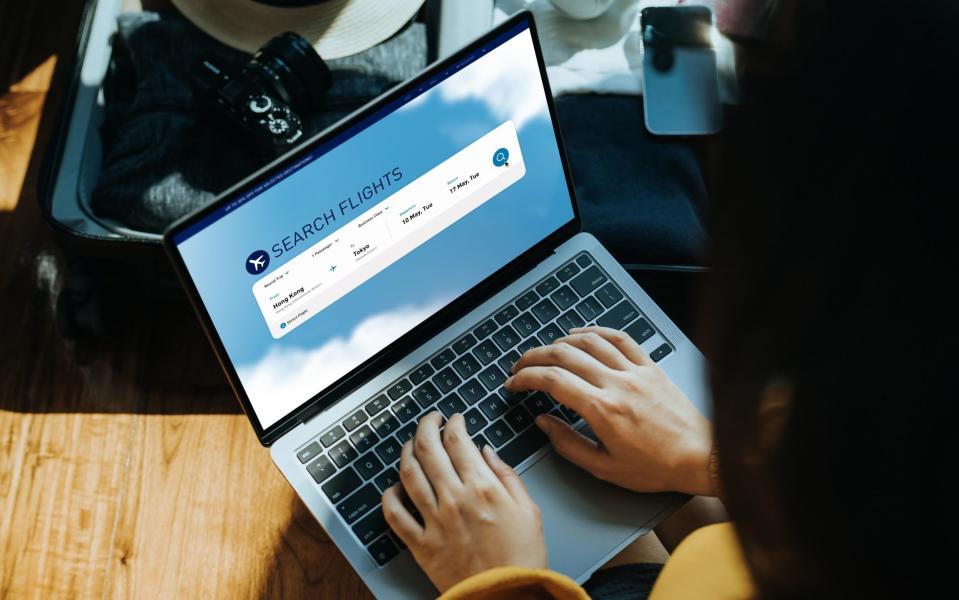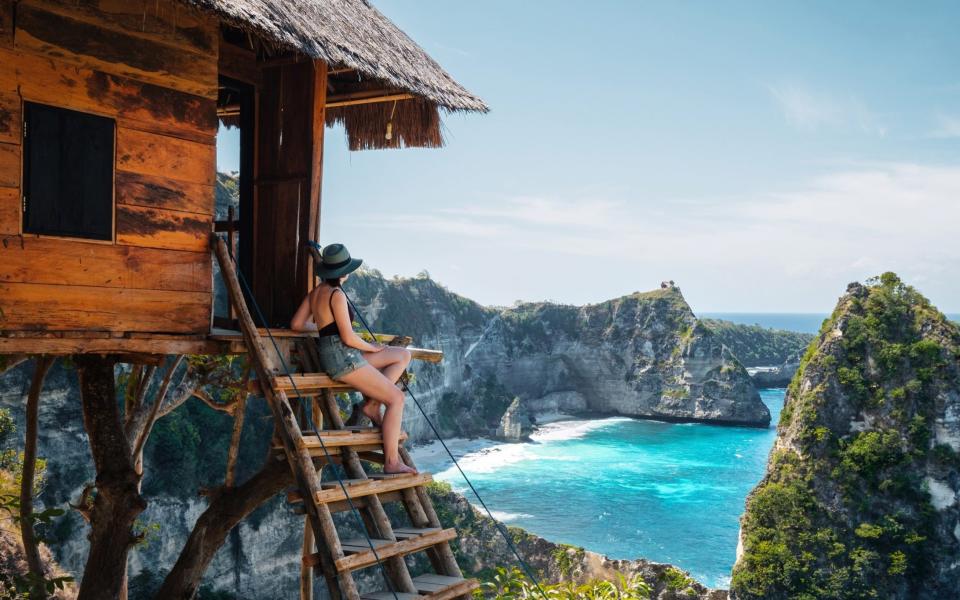Using a VPN – a virtual private network – could help travelers save money when booking holidays this summer, according to a new study.
Research from cyber security company NordVPN has found that Brits are having to pay hundreds of pounds more for hotel stays and car hire than foreign customers. The research found that a two-week package holiday in Bali was 35 percent more expensive (£460) on the UK version of agoda.com, at £1,774 for two adults, rather than £1,314 on the Indonesian version of the website. same website.
Here we look at the technology, how it works and whether it can save you money on your next holiday.
What is a VPN?
A virtual private network (VPN) allows users to surf the Internet from a different location, without leaving their home, by creating an encrypted connection or ‘tunnel’ between their device and a remote server in another country, where all their Internet traffic goes through. passes. For a monthly fee, a VPN can increase a user’s security by hiding both their personal IP address (the identifier on your device that contains location data) and their real location.
What can a VPN be used for?
VPNs help users bypass geographic Internet restrictions.
They can also help users save money. While surfing a local website using a VPN to access cheaper travel isn’t a new concept, whether the effort is rewarded with real savings has long been debated.

How much can you save by using a VPN?
Following its research, NordVPN says consumers are subject to “wildly fluctuating” prices for car rentals, cruises and theme parks depending on where they log in – Telegraph Travel has put it to the test.
While there was no variation in flight prices when we searched both British Airways and easyJet, nor in the prices quoted by some major hotel brands, car hire at the other end of the spectrum varied enormously, with a staggering £164 difference in the cost. of renting a small car in Faro, Portugal, for a week in June. Using Hertz.com from a US location we were quoted £52.36 to rent a Fiat 500, which rose to £196.95 when we searched from Britain and then £216.73 from Portugal.
The available dates for some trips also varied from country to country. Searching for a Norwegian Fjords cruise from the US only offered August departures, twice the price of July departures available to British and Australian searchers.
The Disneyworld packages also varied, but not just in cost. When we looked for three days’ entry from a location in India in mid-July, we were offered tickets to just two parks – Disneyland Park and Disney California Adventure Park – at a price of £1,241.85 for two adults and two children. When using a VPN in the United States, the cost rose to £1,527 for three different parks on three different days. From the UK we were only offered tickets for seven or fourteen days, with multiple parks on each day, at a price of £2,156 for the same family of four. Although each version of Disneyland’s website offered a phone number for guests to call, perhaps where a greater variety of tickets would be available, families were guided along a prescribed route when booking online.
Marijus Briedis, Chief Technology Officer at NordVPN, says: “Never assume you’re getting the same deal as everyone else. Your location, the number of times you visit a website and how your search fits into the school holiday timetable can all affect the price you are offered.
“Online tracking, used by travel websites, means they can tell earlier what holiday we are looking for, while algorithms can adjust holiday prices to suit the purchasing power of different countries.”
There was no clear pattern as to which country gave the best prices, so finding bargains will take patience and effort – and it’s essential to read the fine print when booking to make sure you’re not breaking the law.


Is it legal to use a VPN to get lower rates?
While some governments ban VPNs or place restrictions on their use, most of Europe, Canada and the US allow their use.
“It’s legal to use VPNs in most countries, so there are no laws against using a VPN to access better deals,” says Briedis. “However, some websites prohibit the use of VPN, so if you’re unsure, make sure you read the terms and conditions of the websites you visit. In most cases, using a VPN to search for better travel deals is completely legal [but] falsifying your address details to make it appear as if you are a resident of the country you are visiting is not good practice as the hotel may question this upon arrival.”
What is the alternative to using a VPN?
Although we have found discrepancies in the prices of hotels using Booking.com and Expedia in different locations, it has always been worth checking directly with a hotel to see if they are willing to match a better price or offer a better price than a third party website.
And, says Rory Boland, editor of Which? trip: “While it’s true that local sites can offer better rates than those you normally have access to in the UK, you don’t have to pay for a VPN service to benefit from this. In many cases you can simply visit the local version of the site from your browser, for example using the .fr domain for France or .it for Italy, to access local pricing options. Make sure you pay in the local currency and always use a card that does not charge foreign transaction fees.”
What is the cheapest country to book via a VPN?
There’s no silver bullet to finding better deals, but booking from a country with a stronger economy (e.g. Switzerland) can often have higher holiday prices, both at home and abroad. But this isn’t always the case, so the general advice is to shop around, compare and contrast.


How else can VPNs help me when I’m on vacation?
Finally, a VPN can be useful when traveling, says Berlin-based Brit Duncan Madden, author of the travel book Found in translation: “I use a VPN when booking trips from more remote parts of the world because sometimes IP addresses aren’t as trusted or secure, which can cause problems when booking last-minute flights or hotels.
“With a VPN I can avoid that problem and it also helps with simple things like language use. When I use a VPN from England, websites are in English by default.”